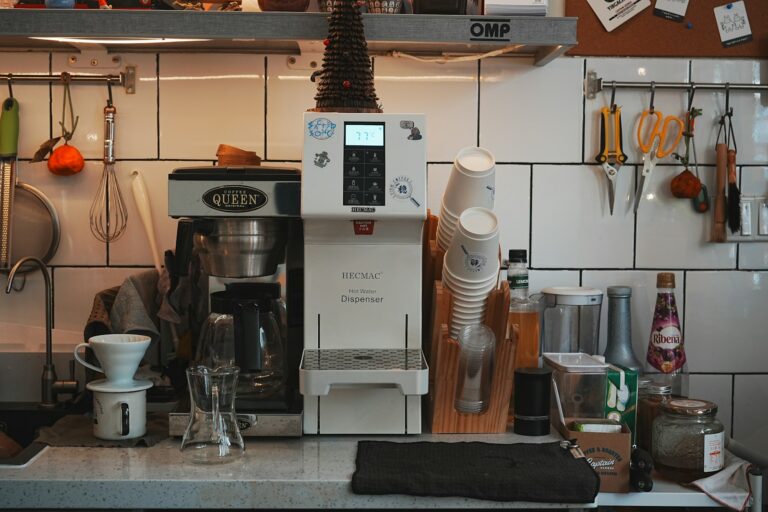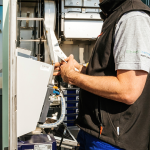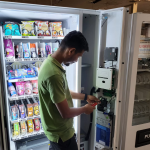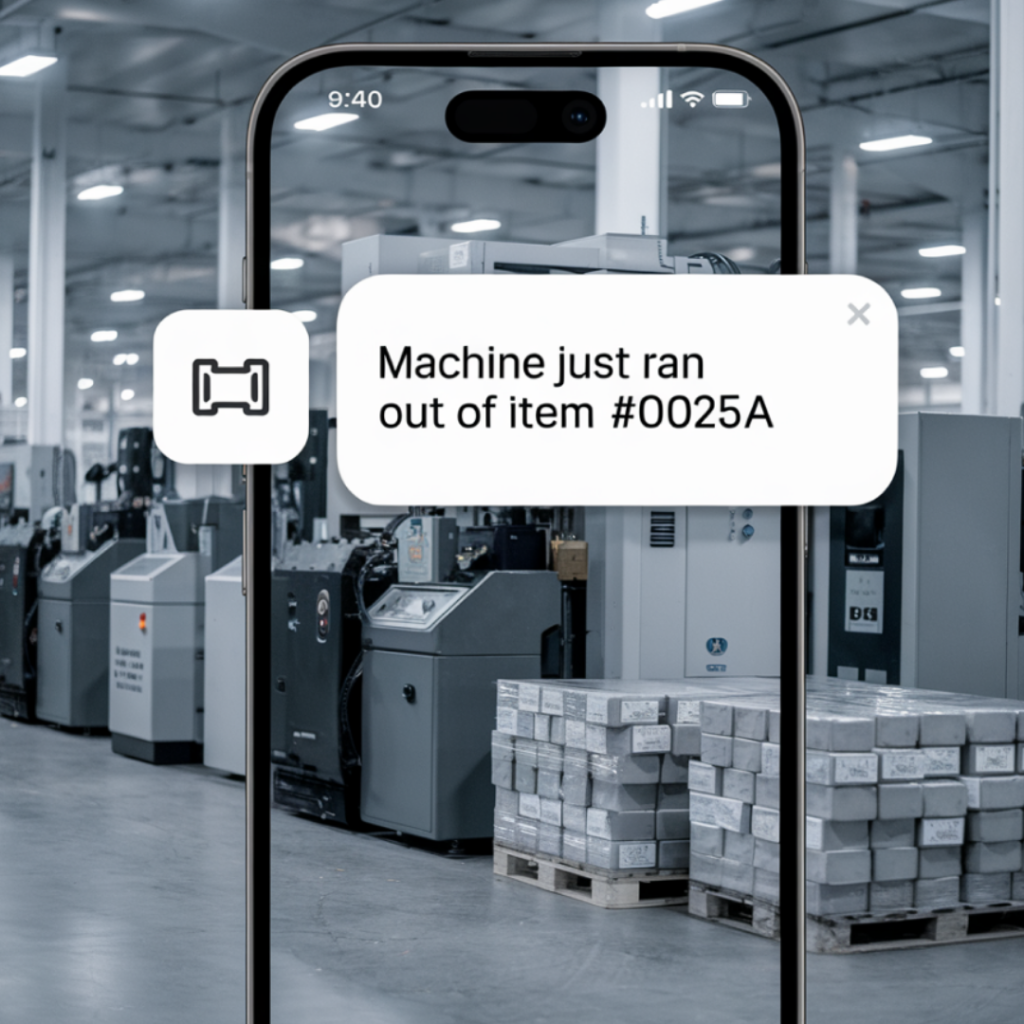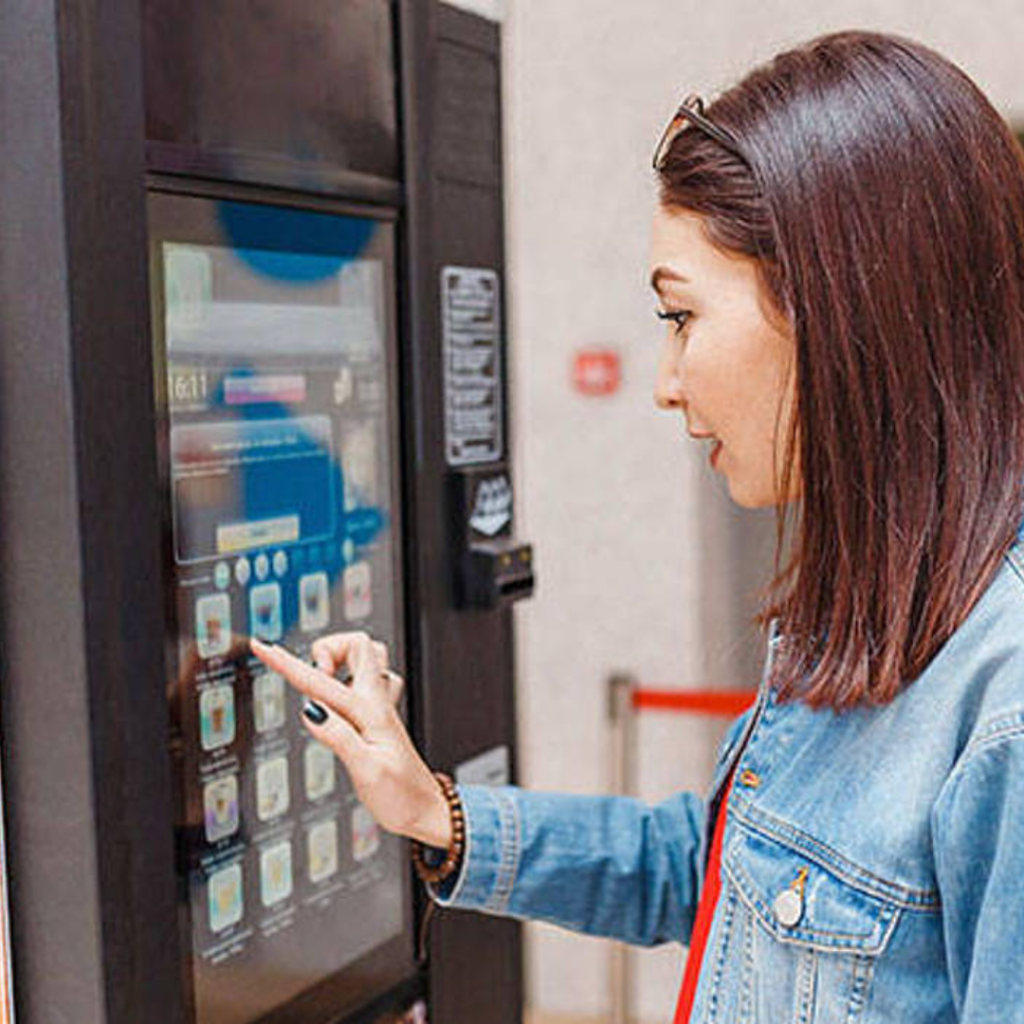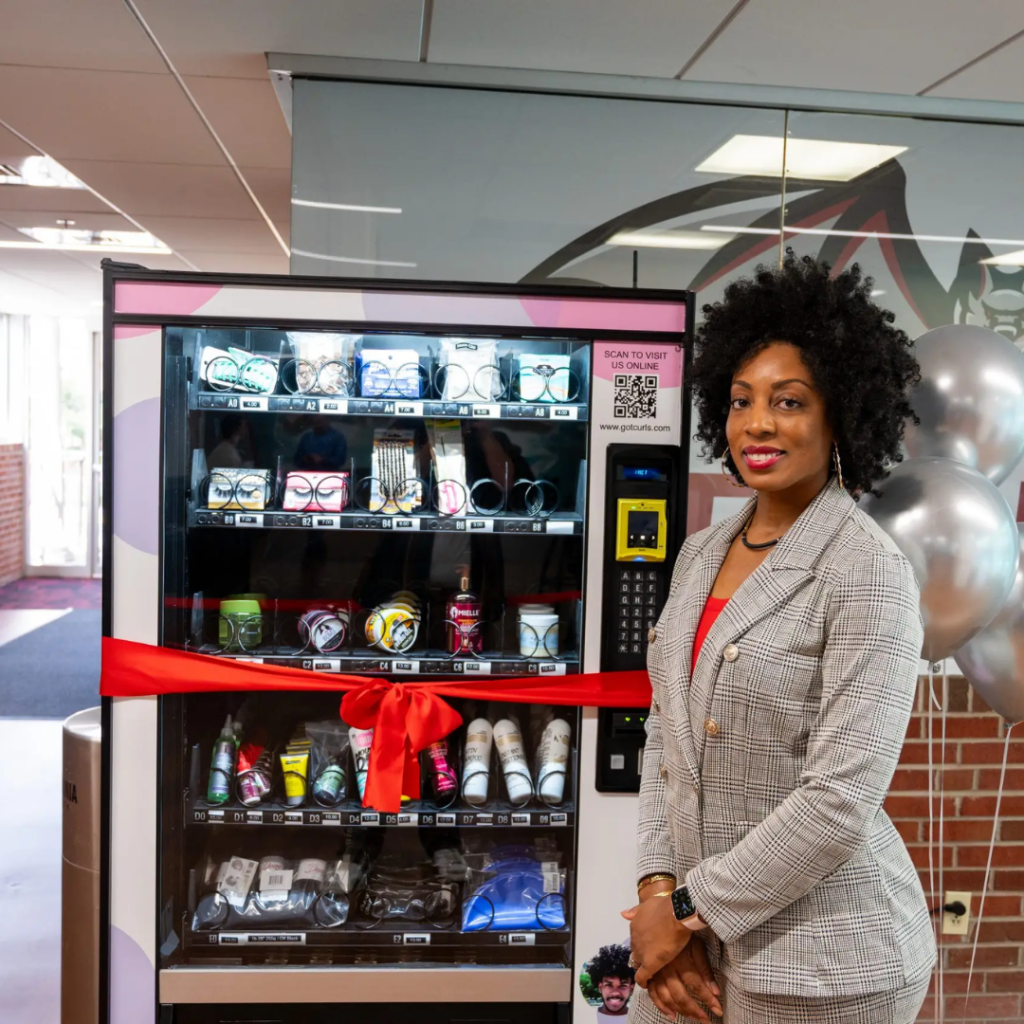Vending Machine Permits In The United States | Rules And Costs

Before starting a vending machine business, you need to know the legal steps. The most important one is securing the right permit for a vending machine in the United States. Permits establish your business as legitimate, ensure compliance with state and local laws, and protect you from costly fines. They also build trust with customers, since most permits involve health and safety checks. This guide explains why vending permits matter, what types exist, how to apply, state-by-state differences, and the risks of operating without them. If you plan to run snack, drink, or food vending machines, this guide gives you everything you need to know.
Why Do You Need A Vending Machine Permit
A vending machine permit is more than a piece of paperwork. It shows that you are operating legally, paying the right taxes, and following local rules. Without it, you risk fines, removal of your machines, or even losing your business license altogether. Permits also create trust. Property managers want to know that operators on their site are compliant, and customers want to know that the food or drinks they buy meet health standards.
If your machines vend snacks or cold beverages, the permit assures health departments that your machine is safe and sanitary. For operators who expand into more complex setups like hot food or coffee, permits often involve extra inspection steps. In these cases, a permit works as both a legal requirement and a stamp of credibility that helps you secure better locations and long-term contracts.
Permits also matter when scaling. Many entrepreneurs start with a single machine and later expand into different counties or states. Each region has its own requirements, so having experience with the permitting process early on makes growth much smoother. If you are wondering about costs, our full breakdown of how much a vending machine permit costs explains typical fees and timelines across the United States.
Types of Permits and Licenses for Vending Machines
Different permits and licenses apply depending on what you sell, where you place your machines, and the state you operate in. Understanding the categories helps you plan ahead and avoid costly surprises. Below are the main types of permits most operators encounter in the United States.
Business License
This is the foundation of any vending operation. Almost every state requires you to register your vending business with a general business license. It officially recognizes you as a legal entity and allows you to operate under your chosen business structure, such as an LLC or corporation. Without this license, you cannot apply for other permits or open a business bank account.
Seller’s Permit
A seller’s permit is critical if you sell taxable goods. It gives you the right to collect and remit sales tax. For example, drinks, snacks, and packaged foods often fall into the taxable category. Requirements vary by state, with fees ranging from a few dollars to over $100 depending on the jurisdiction. In states like California, a seller’s permit is required even if you only operate a handful of drinks vending machines, while other states may exempt very low-value sales.
Health Permit
If your machines sell perishable or temperature-sensitive products, a health permit becomes mandatory. Local health departments typically conduct inspections to confirm your machines meet safety and sanitation standards. This applies to operators running food vending machines, coffee vending machines, or machines that store items like milk or frozen goods. Inspectors often check refrigeration, labeling, and cleaning practices before issuing the permit.
Zoning Permit
Even with all other permits in place, you may still need zoning approval to place a machine at your chosen site. Cities and counties regulate where vending machines can be installed, especially in residential areas or near schools. Zoning permits are common for outdoor setups, transit hubs, or public-facing installations.
Additional Local Licenses
Some municipalities require extra licenses beyond the standard list. These can include fire permits for machines with heating elements, or specialized licenses for machines that sell regulated products. If you are planning to operate niche units like combo vending machines in multiple towns, you will need to research each local ordinance carefully.
Permits, Documents, And Legal Requirements For Vending Machines
Documents Required For Permit Applications
Securing permits involves gathering the right paperwork. Being organized speeds up approval and prevents delays. Most applications require the following:
- Business Formation Papers: LLC or corporation filings, or sole proprietor registration.
- Tax ID: Your Federal Employer Identification Number (EIN).
- Personal ID: Driver’s license, passport, or other valid government-issued identification.
- Location Agreement: A signed contract or proof of permission from the property owner where your vending machine will operate.
- Health Certificates: If operating food and beverage machines, proof of compliance with sanitary inspections.
- Insurance Documentation: Liability insurance is often required, especially for operators managing multiple combo vending machines or high-value drinks vending machines.
Federal, State, And Local Laws
Operators must comply with multiple layers of regulation, not just state and county rules. Understanding these levels prevents costly mistakes:
- Federal Requirements:
- The FDA requires calorie and nutrition labeling on vending machines selling food and beverages if you operate 20 or more units.
- The Americans with Disabilities Act (ADA) enforces accessibility standards, meaning machines must be usable by people with disabilities.
- State Requirements:
- Sales tax collection rules differ widely. Some states charge per machine, others use operator-wide fees.
- Inspection schedules and fees also vary. For instance, Wisconsin bases its fees on the number of machines an operator manages.
- Local Rules:
- Counties and cities may add zoning restrictions, especially in schools, hospitals, and government-owned spaces.
- Some localities require a separate permit for each vending machine.
Permit Comparison Table
| Permit Type | Purpose | Who Needs It | Estimated Cost | Example Requirement |
|---|---|---|---|---|
| Business License | Legal recognition of the vending business | All operators | $50 – $300 annually | Required in every U.S. state |
| Seller’s Permit | Collect and remit sales tax | Operators selling taxable goods | Varies by state ($0 – $100+) | Los Angeles charges $71 plus per-machine fees |
| Health Permit | Ensure food safety compliance | Food and beverage machines | $50 – $1,000 depending on inspection | Applies to food, ice cream, and coffee machines |
| Zoning Permit | Control where machines can be installed | Outdoor and public placements | $25 – $500 depending on location | Transit stations and schools often need zoning approval |
| Local Licenses | Comply with county or city rules | Varies by jurisdiction | $10 – $200 per machine | Additional permits for school or hospital placements |
For a detailed breakdown of costs, see our guide on how much a vending machine permit costs. Staying ahead of these requirements ensures your business avoids penalties, builds customer trust, and runs smoothly across multiple locations.
How to Apply for a Vending Machine Permit
Getting a permit for a vending machine in the United States is a process, but it becomes manageable when you know the steps. The exact requirements vary by state and county, yet most applications follow a common structure. Here’s how to approach it.
Step 1: Gather Required Documents
- Business formation documents: Articles of incorporation, LLC papers, or sole proprietor registration.
- Employer Identification Number (EIN): Needed for tax purposes and to register your vending company with the state.
- Sales tax registration: Proof that you have or are applying for a seller’s permit.
- Machine details: Information about the type of machine, products sold, and planned locations.
Step 2: Submit Your Application
Most states and cities allow online applications through local government websites. Others may require you to file in person at a clerk’s office or health department. Submitting early is key, since approval can take several weeks depending on the workload of the agency.
Step 3: Pay the Fees
Fees depend on the location and number of machines. For example, Los Angeles charges a base fee per operator plus additional charges per machine, while other states like Wisconsin adjust fees based on the size of your fleet. Expect a range between $50 and $250 per machine, though specialized units like ice cream vending machines or food vending machines may require higher fees due to stricter health oversight.
Step 4: Pass Inspections (If Required)
For machines that vend food, beverages, or hot products, local health departments often require an inspection before approval. Inspectors will check refrigeration, product labeling, cleanliness, and maintenance procedures. Machines like coffee vending machines or hot food models may undergo additional safety checks to ensure proper temperature controls and hygiene standards.
Step 5: Maintain Compliance
Approval isn’t the end of the process. You need to keep permits up to date, pay renewal fees, and ensure your machines continue meeting safety standards. Many counties require annual renewals and random inspections, so maintaining accurate records is essential. Some operators also combine permits with extra security investments, such as placing machines in monitored areas or pairing them with tamper-resistant models like combo vending machines built for high-traffic sites.
Health and Safety Requirements for Vending Machines
Health and safety rules are among the most important parts of vending compliance. If your machines sell food, beverages, or perishable goods, regulators want to know that customers are safe. Ignoring these standards can result in fines, machine shutdowns, or even losing your permit. Here’s what operators must pay attention to.
Routine Inspections
Local health departments often perform scheduled and surprise inspections. Inspectors check for product freshness, safe temperatures, and sanitary conditions inside the cabinet. Machines like food vending machines and ice cream vending machines are held to higher standards since they store perishable products that must remain at strict temperatures.
Temperature Control
- Cold storage: Perishable foods and dairy products must stay between 32°F and 41°F.
- Frozen storage: Ice cream and frozen meals must remain at or below 0°F to prevent spoilage.
- Hot vending: Units like coffee vending machines or hot food models must maintain safe holding and dispensing temperatures to avoid contamination.
Labeling and Nutrition Information
The FDA requires operators with more than 20 machines to display calorie counts for each product. Even if you manage fewer machines, clear labeling helps build customer trust. Drinks, snacks, and combo options should display ingredients and allergens. Modern drinks vending machines and combo models often include digital displays that make compliance easier.
Sanitation and Maintenance
- Keep machines clean inside and out to prevent contamination and pests.
- Check expiration dates weekly, removing any expired products immediately.
- Service the refrigeration system regularly to prevent breakdowns and food loss.
Documentation and Records
Operators must document service visits, product checks, and repairs. These records prove compliance during inspections and protect against disputes. For businesses scaling across multiple counties, keeping digital logs can simplify reporting and reduce paperwork stress.
Conclusion
Running a vending business in the United States means more than stocking products and collecting revenue. Permits are the foundation that keeps your operation legal, trusted, and sustainable. From business licenses and seller’s permits to food safety inspections and zoning compliance, each step protects both your profits and your reputation.
While requirements differ from state to state, the principle remains the same: secure the right permits and keep them active. By doing so, you avoid costly fines, protect your machines, and earn the confidence of property managers and customers.




